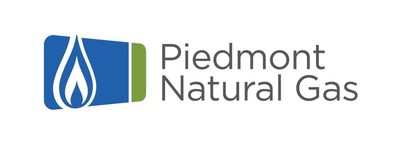Train your nose: Piedmont Natural Gas shares how to recognize a natural gas leak
- Piedmont Natural Gas emphasizes the need to detect natural gas leaks and take immediate action to ensure safety
- None.
- As part of National Fire Prevention Week, Piedmont Natural Gas reminds communities if they smell gas, get out fast!
- An odorant called mercaptan is injected into natural gas, giving it a distinctive smell so it is easy to detect, to help keep customers and communities safe
- Video here: Learn how mercaptan works
National Fire Prevention Week is an annual observance aimed at educating the public on simple but significant steps individuals can take to keep themselves and those around them safe from home fires. As part of this campaign, Piedmont is sharing how to recognize a natural gas leak and how to react if one is suspected.
Train your nose: Smell rotten eggs? Could be natural gas
Natural gas by itself has no smell. An odorant called mercaptan is injected into natural gas, giving it the distinctive smell of rotten eggs. The odor makes natural gas easy to detect and can alert the public of a natural gas leak to help avoid a potentially dangerous situation.
"Training your nose to identify the rotten-egg odor of mercaptan is the best way to detect a natural gas leak," said Sasha Weintraub, senior vice president and president of Piedmont Natural Gas. "Our technicians respond immediately to investigate potential leaks, so knowing the warning signs is the best defense to help keep our customers and communities safe."
Look and listen for leaks
In addition to having a distinct smell, natural gas leaks are often visual, causing bubbling water, blowing dirt or dead plants. You also may see sinkholes or exposed pipe. It's also possible to hear a hissing sound near a natural gas line or meter.
Steps to take if you suspect a leak
If a natural gas odor is detected, follow these steps:
- Leave the area immediately.
- Call Piedmont at 800.752.7504 or call 911 from a neighbor's house or somewhere away from the smell of natural gas.
- Do not return to the location of the leak until a Piedmont technician or emergency responder informs you that the area is safe.
An extra layer of natural gas safety
Installing a natural gas detector is an additional safety measure to keep residents aware of potential leaks. A natural gas detector will sound an alarm if levels of natural gas in the area indicate a leak.
If the alarm is triggered, stop what you are doing, get as far away from the smell as possible and call 911, or call Piedmont at 800.752.7504.
For additional information about natural gas safety, visit the Piedmont Natural Gas website.
Piedmont Natural Gas
Piedmont Natural Gas, a subsidiary of Duke Energy, distributes natural gas to more than 1.1 million residential, commercial, industrial and power generation customers in
Duke Energy (NYSE: DUK), a Fortune 150 company headquartered in
Duke Energy is executing an aggressive clean energy transition to achieve its goals of net-zero methane emissions from its natural gas business by 2030 and net-zero carbon emissions from electricity generation by 2050. The company has interim carbon emission targets of at least
Duke Energy was named to Fortune's 2023 "World's Most Admired Companies" list and Forbes' "World's Best Employers" list. More information is available at duke-energy.com. The Duke Energy News Center contains news releases, fact sheets, photos and videos. Duke Energy's illumination features stories about people, innovations, community topics and environmental issues. Follow Duke Energy on Twitter, LinkedIn, Instagram and Facebook.
24-Hour: 800.559.3853
![]() View original content to download multimedia:https://www.prnewswire.com/news-releases/train-your-nose-piedmont-natural-gas-shares-how-to-recognize-a-natural-gas-leak-301950768.html
View original content to download multimedia:https://www.prnewswire.com/news-releases/train-your-nose-piedmont-natural-gas-shares-how-to-recognize-a-natural-gas-leak-301950768.html
SOURCE Piedmont Natural Gas
FAQ
What is National Fire Prevention Week?
How can you detect a natural gas leak?
What should you do if you suspect a natural gas leak?
What additional safety measure can be taken to detect natural gas leaks?
Who is Piedmont Natural Gas?
What are Duke Energy's clean energy goals?








